Photo: James Watkins
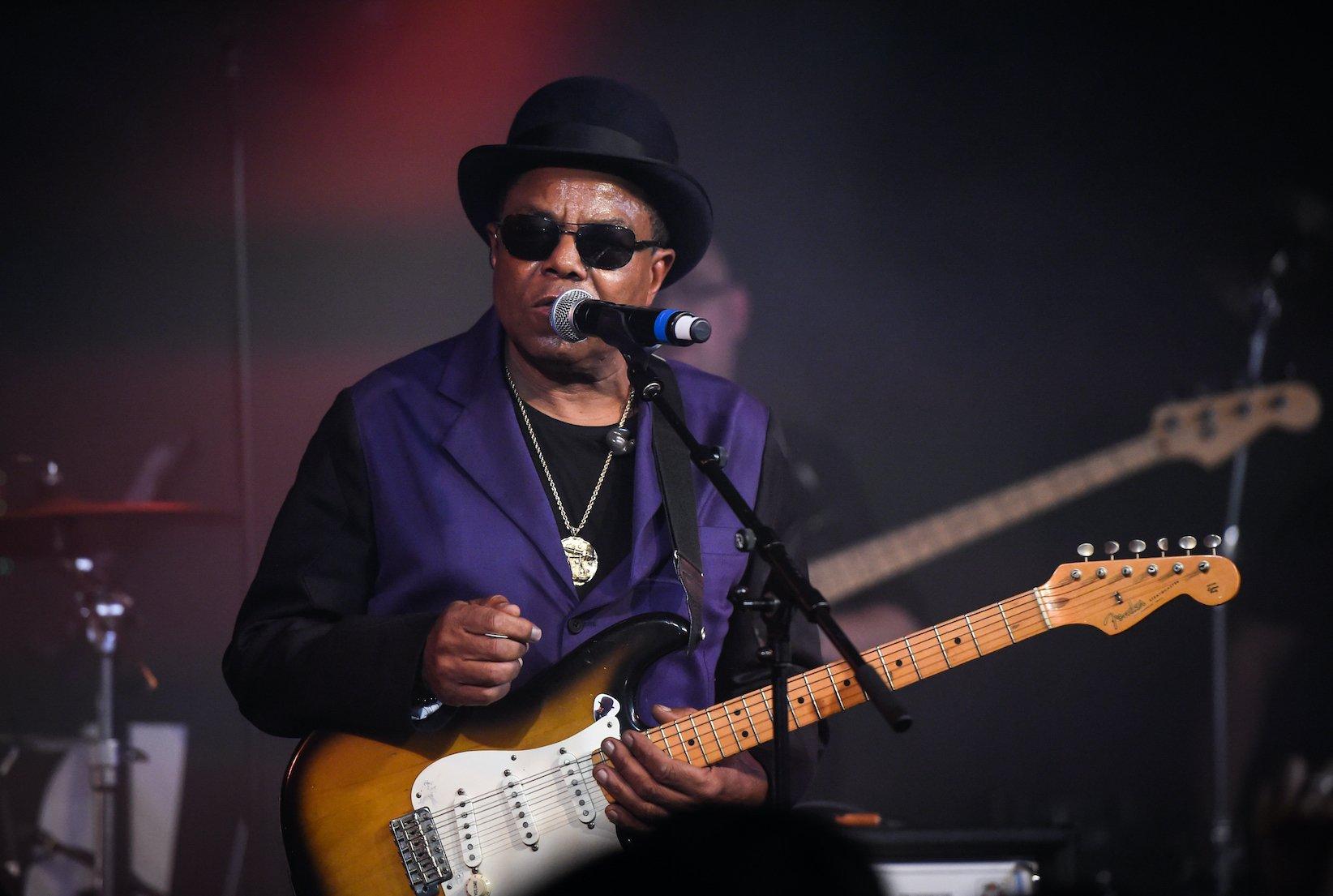
interview
Tito Jackson On His New Blues Album 'Under Your Spell' & His Better-Late-Than-Never Solo Career
Unlike his brothers in the Jackson 5, Tito Jackson didn't release a solo album until decades into his career. Now, he's releasing his second, 'Under Your Spell,' an homage to how the blues have shaped him from childhood onward
"If Tito wasn't in the Jackson 5, would we really miss him?"
Charles Barkley broached this jarring rhetorical question about singer/songwriter Tito Jackson, the third child in the sibling superstar band. (The NBA analyst prefaced it by comparing them to the Miami Heat, with Michael as their all-star shooting guard Dwyane Wade.) "That really rung a bell with me," Tito tells GRAMMY.com. "I said to myself, 'They don't see the contribution you bring to the group because you don't have any records out.'"
Indeed, unlike his brothers—Michael, Marlon, Jermaine, Randy, and Jackie—Tito hadn't yet released a solo album. He made this right in 2016 with Tito Time, an R&B/pop album with contributions from Big Daddy Kane, Jocelyn Brown and 3T. For its follow-up, though, he decided to dig deeper into the sounds that formed him and bring his unconventional career full circle—with a little help from Stevie Wonder, George Benson and Joe Bonamassa.
<style>.embed-container { position: relative; padding-bottom: 56.25%; height: 0; overflow: hidden; max-width: 100%; } .embed-container iframe, .embed-container object, .embed-container embed { position: absolute; top: 0; left: 0; width: 100%; height: 100%; }</style><div class='embed-container'><iframe src='https://www.youtube.com/embed//65eEHAMZMSo' frameborder='0' allowfullscreen></iframe></div>
Read More: George Benson Talks Tribute Album To Chuck Berry & Fats Domino: "The Songs are Still Ripe"
That album is Under Your Spell, which was released Aug. 6. Earthy, upbeat and feel-good—with elements of funk and R&B throughout—it's the product of a man with a one-of-a-kind legacy and nothing to prove. But as originals like "Wheels Keep Turning," "Love One Another" and "That Kind of Love" attest—to say nothing of B.B. King's "Rock Me Baby"—it just feels good for him to sing the blues, simple as that. And thanks to his rock-solid, unpretentious delivery, his joy becomes our joy too.
GRAMMY.com caught up with Tito Jackson about how the blues runs in his famous family, where the American form fits into the modern music landscape and the realizations that led to his better-late-than-never solo career.
This interview has been lightly edited and condensed for clarity.
Under Your Spell is framed as a return to your blues roots. What's your foundation in this artform? How did you grow from that soil, so to speak?
When I was really, really young—I'm saying around five—my parents always listened to Jimmy Reed, Elmore James, B.B. King and all these other blues players. I basically fell in love because my father and his brother, Uncle Luther, used to jam every weekend with their guitars. They'd play all these blues songs that are classics today. Basically, I would just sit there and stare at them because I loved the music. You know, I'm a young man wanting to be my dad and that whole thing.
He would always say, "When I go to work, don't touch my guitar." And me being a kid, that's like hearing the opposite. I'd been watching their fingering and all these other things and I wanted to try them. My mother would let me play the guitar and tell me "Put it away! Your dad will be home within the hour." So I put it away and she never said a word to him, until one day I broke the little E string.
He got really upset at me and gave me a spanking and all that. Then, he put it in my lap and said, "Show me what you know." I was playing the little things I knew and my mom said, "He's really trying to play this thing! He's not playing with it; he really wants to play it." So, surprisingly, my father gave me the guitar. I think it's called an Airline.
He told me, "I want you to learn every song you like on the radio." And, of course, at that time, it was the Temptations, the Motown sound, the Isley Brothers, James Brown. I would be learning these songs and my brothers started singing backup with me. We had a little trio: My older brother and my younger brother. Michael and Marlon were just babies—they were playing with toys on the floor still. We were four or five years older and said, "You're too young."
We heard Michael singing ballads at school. We rushed him into the group after that and Marlon too. But at that time, we did do blues at our show. We did a lot of B.B. King and Bill Doggett and Johnnie Taylor and other artists. By the time we reached Motown, the only time I got to play the blues was when there was a mishap on stage, like when a microphone went dead. They'd holler, "Tito, play some blues!" and that's when I would get my little shot. It only happened a few times.
After those occasional rendezvouses, when would you cross paths with the blues again?
From that time, we had done a whole lot of things with our career and we decided to take a break in 1985, '86, something like that. I hadn't played new music in a long time, so I grabbed some friends of mine since I was living in Oxnard, California, which is a much smaller town than Los Angeles or Calabasas. These guys were musicians, but they were secondary musicians because they had main jobs. They were longshoremen. One owned an auto body shop. The other one was a mechanic. Things like that.
They couldn't leave their jobs to go on the road, but I was very shy at the time. One of the guys owned a nightclub called Roadhouse in Oxnard. We rehearsed there and some of the guys who worked in the fields would come in there and play pool. They didn't care about blues or anything. We'd just be there rehearsing and singing and that whole thing.
Then, I started going to [play] church benefits and weddings and grew from there to do a few club dates and had a small tour in America. That grew to the cruises and then I started playing in other parts of the world—Europe and Japan and Spain and Brazil. From there, it just grew and grew until I'm at where I'm at today with the music.
<style>.embed-container { position: relative; padding-bottom: 56.25%; height: 0; overflow: hidden; max-width: 100%; } .embed-container iframe, .embed-container object, .embed-container embed { position: absolute; top: 0; left: 0; width: 100%; height: 100%; }</style><div class='embed-container'><iframe src='https://www.youtube.com/embed//OGLM2zkzpiQ' frameborder='0' allowfullscreen></iframe></div>
What compelled you to become a solo artist like your brothers?
My brothers did solo records back in the day and I never did anything, since we moved companies from Motown to Sony. It's Sony today; it was Columbia back then. We were on the Epic Records label. But on Motown, they did records for Michael, Jermaine and Jackie. Then, later, Marlon did one. I believe it was on RCA or Capitol. But I never did anything because I had three sons and I wanted to make sure they were straight. Chasing the Jackson 5's career and having a wife and kids was never for me.
It got to a point where I said to myself, "What's the point of having a record? You're already in the Hall of Fame. You have a star on the Walk of Fame. You've played for the Queen of England and kings and of things of that nature. What do you really have to prove?" But looking back on saying that, every sibling in my family—even my kids—have had records out there. I was the only one out of that original generation that didn't do anything.
So, I didn't want to be that trivia question: "Which Jackson never had a record out or did anything on his own?" I decided I would do a record, which I did. My first album, called [2016's] Tito Time, is more in the vein of R&B, pop and that type of thing. Basically, just trying to do something for my fanbase: "Get it Baby" and "One Way Street." But I always said that if I wanted to do an album, it would be a blues album. My heart was with the blues.
What made me really do it was for two reasons. One being there was a survey online saying, "Will Tito ever do a record?" The needle was slightly pointed toward "Yes," but what really made me do something was Charles Barkley, the basketball player. One time, it was the Miami Heat playing in the playoff final game. He said, "The Heat played like the Jackson 5," [Dwyane] Wade being like Michael. He said, "Tell me something. If Tito wasn't in the Jackson 5, would we really miss him?"
That really rung a bell with me. I said to myself, "They don't see the contribution you bring to the group because you don't have any records out and you haven't sung any songs." I said, "I'd better do this record so they know what I have, or what I can do." So that's when I decided to do that.
What was it like collaborating with Stevie Wonder and some of your other colleagues for Under Your Spell? What was the rapport like?
Stevie was great. I've recorded with Stevie before on some of his projects. He's always great to work with. The guy's so talented. You don't have to coach him at all. He just gets right into it. Just his harmonica rhythms are Stevie, you know?
Now, with George Benson, we were working together about five or six years ago in Las Vegas. Of course, we had conversations: "Hey man, let's do something one day," whatever, which never comes. I was on the road in the B.B. King with [his] blues band, and it just so happened that the road manager knew George Benson and had mentioned that I was out there with him and this and that. We were headed up to Nevada and he wanted us to stop by.
Meanwhile, B.B. King's daughter, Claudette King, and I were talking about doing a tribute to B.B. King. We had decided we were going to do this song, "Rock Me, Baby." The sax player had it cut and then when we went up to Arizona, we played it to George. He volunteered to perform on it and that's how that came.
Now with Joe Bonamassa, I didn't know him at all. That's through [songwriter, guitarist and producer] Mike Zito. But I did want him on my album because he's probably one of the hottest—if not the hottest—out there.
Tito Jackson. Photo: Laura Carbone
I feel like blues music is pushed to the fringes of the mainstream these days. How do we bring it back into the center of the conversation, since all American music arguably comes from the blues?
That's basically what I was trying to do with this song, "Love One Another," and this complete album. I didn't want to do the traditional, slow "My baby left me" blues kind of thing. I wanted it to be danceable. I wanted it to be an album you can put on in your car while you're driving and enjoy it or at a barbecue or family gathering or whatever. I tried to give the blues a little bit of wiredness by adding people like Eddie Lavert or Stevie Wonder. These guys are from the pop music rank.
That attracts attention to the music, to the genre, which needs customers. It needs listeners. I've been listening to blues radio for quite some time, but some of the stations—I'm not talking about internet radio, but radio radio—I notice some of the music they play, they don't include up-to-date blues. They play six or seven really old folk-blues probably from when your great-grandfather was a kid.
I think they should do it the other way around. Look at what is R&B music or rock music. It all has the blues—a slight change to it as time goes on. Blues just bends its wills. I think the more blues players try to think outside the box, [the more] they can create something that makes it more appealing to the listener. Just doing I-IV-V chords with basic time gets a little boring.
How would you pitch the blues to a young person? What comes to my mind is the universal emotion. Our fundamental human problems haven't changed much since the turn of the century.
Exactly, but what's even more important, I think, is trying to get some of these popular artists in collaboration. What if Bruno Mars did a blues tune with somebody? Or put a blues-element type of feel tune on his album? That type of thing. That's what I think we need to go with, because kids are followers, basically. Anything he'd do, his fanbase is going to like it.
I think that's one of the ways. Not only him, but a lot of popular artists. Your Snoop Doggs, your Drakes. It'd be nice to have Taylor Swift singing "At Last" by Etta James or something like that, you know? It doesn't have to be the single. Just have it on the album. That's called giving blues a chance.
"I think it's important to keep on singing a song as long as there's a song to sing." - Tito Jackson
When you look back on the arc of your life and career, what emotions bubble up in your mind?
I'm proud of my career. I wish I had the head I have now about my career when I was much younger. I could have done a lot more when I was younger. But I'm proud of my accomplishments—the records that we hold as well as the inductees and all of these other things. Like I said, what else do I have to prove? And I'm proud that I did this blues album and I plan to do more.
It's just been great, you know? The brothers don't record like we used to, but I think it's important to keep on singing a song as long as there's a song to sing.
Jon Batiste Talks New Album 'We Are,' His Brain-Breaking Itinerary & Achieving "Freedom" From Genre
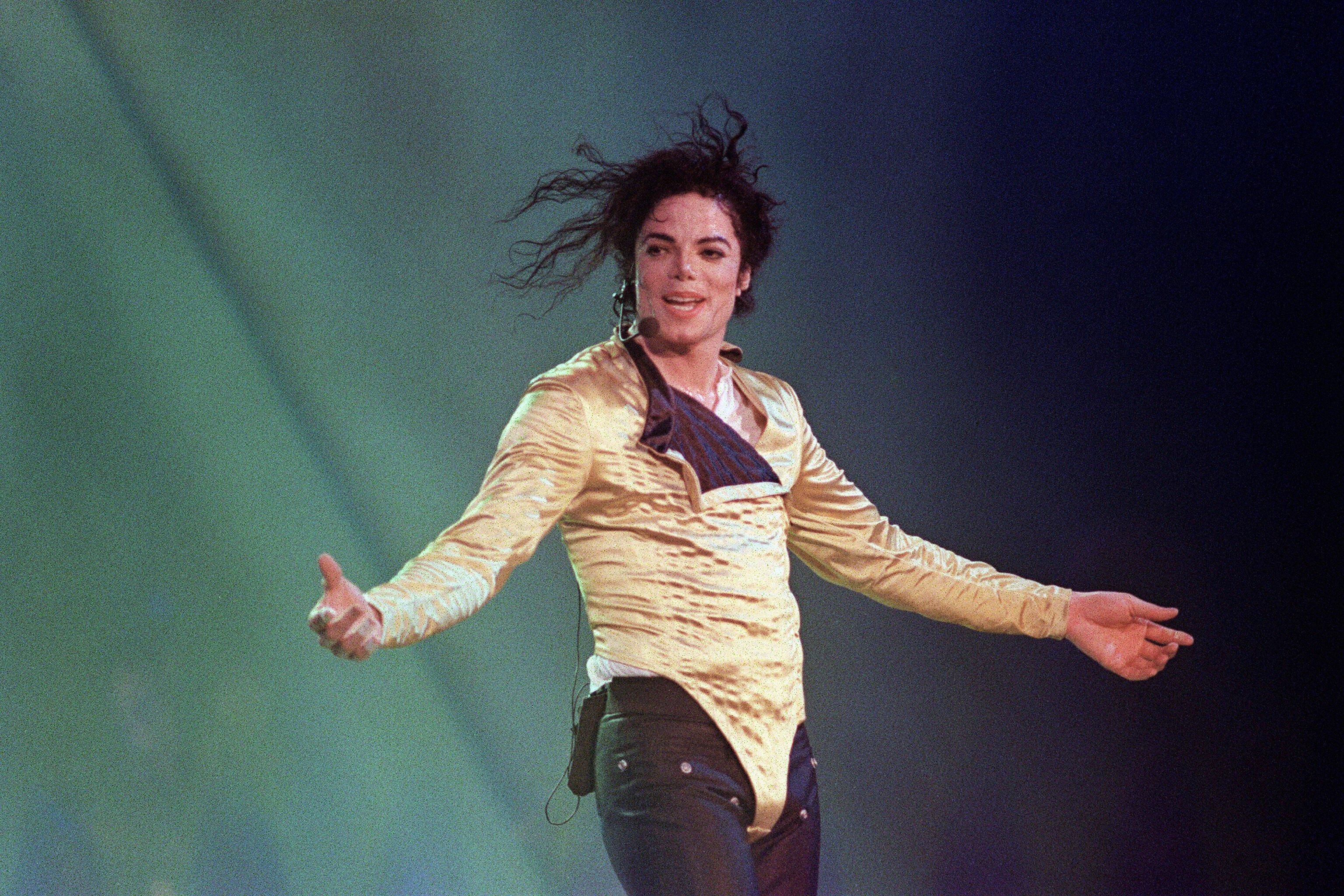
Photo: Francis Sylvain/AFP via Getty Images
news
On This Day In Music: Michael Jackson Passes Away In Los Angeles At Age 50
The music world suffered a catastrophic blow on June 25, 2009, when the King of Pop died in Los Angeles at just 50 years old. Fifteen years later, reflect on this momentous day.
Nearly 15 years since its release, it’s still wrenching to watch the documentary Michael Jackson’s This Is It — a glimpse of one of the greatest concerts that never happened.
Revisiting behind-the-scenes footage of the planned residency at London’s O2 Arena, it’s clear Michael Jackson was at the top of his game. The Kenny Ortega-directed film takes us through rehearsals, dancer auditions, costume design, and more, as the run of 50 shows loomed.
Despite any personal or medical issues the embattled King of Pop faced, he danced and sang terrifically. All 50 dates had sold out; after more than a decade off the road, This Is It was bound to be a momentous pop event.
But the residency would never happen, for the most tragic reason possible: on June 25, 2009, after returning home from a past-midnight rehearsal, Jackson passed away from acute propofol intoxication, administered by his personal physician, Conrad Murray. Jackson was 50.
The news rattled the world, causing major internet platforms including Google, AOL Instant Messenger, Twitter, and Wikipedia to be pushed to the breaking point with significant traffic spikes. The following year, Murray was convicted of involuntary manslaughter, and sentenced to four years in prison. (He was released after serving nearly two years, due in part to good behavior.)
“Our beloved son, brother, uncle and father of three children has gone so unexpectedly, in such a tragic way and much too soon,” read a statement from the Jackson family. “It leaves us, his family, speechless and devastated to a point, where communication with the outside world seems almost impossible at times.”
As Jackson's music sales spiked, Jackson’s memorial service was held on July 7, 2009, at the Staples Center. Berry Gordy, Brooke Shields, and Smokey Robinson offered eulogies, and an all-star lineup — including Mariah Carey, Stevie Wonder, Lionel Richie, and others — performed Jackson’s iconic songs.
Of course, true legends never die — but a world without the King of Pop has been a little dimmer. On this day in music, crank up Thriller or Bad, and remember one of the greatest entertainers who ever lived.
Explore More History-Making Moments In Music
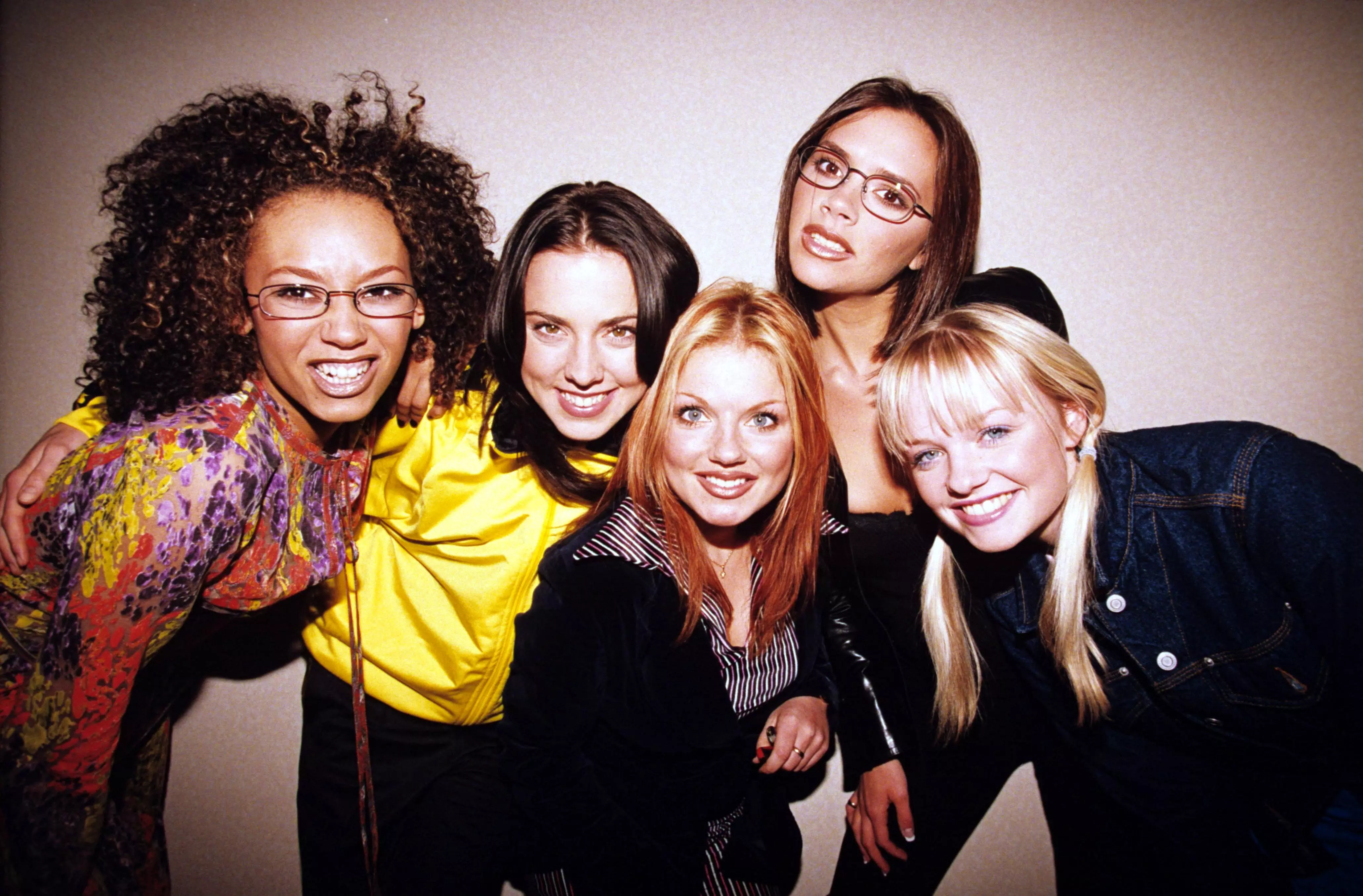
On This Day In Music: Spice Girls Release "Wannabe," Their Iconic Debut Single
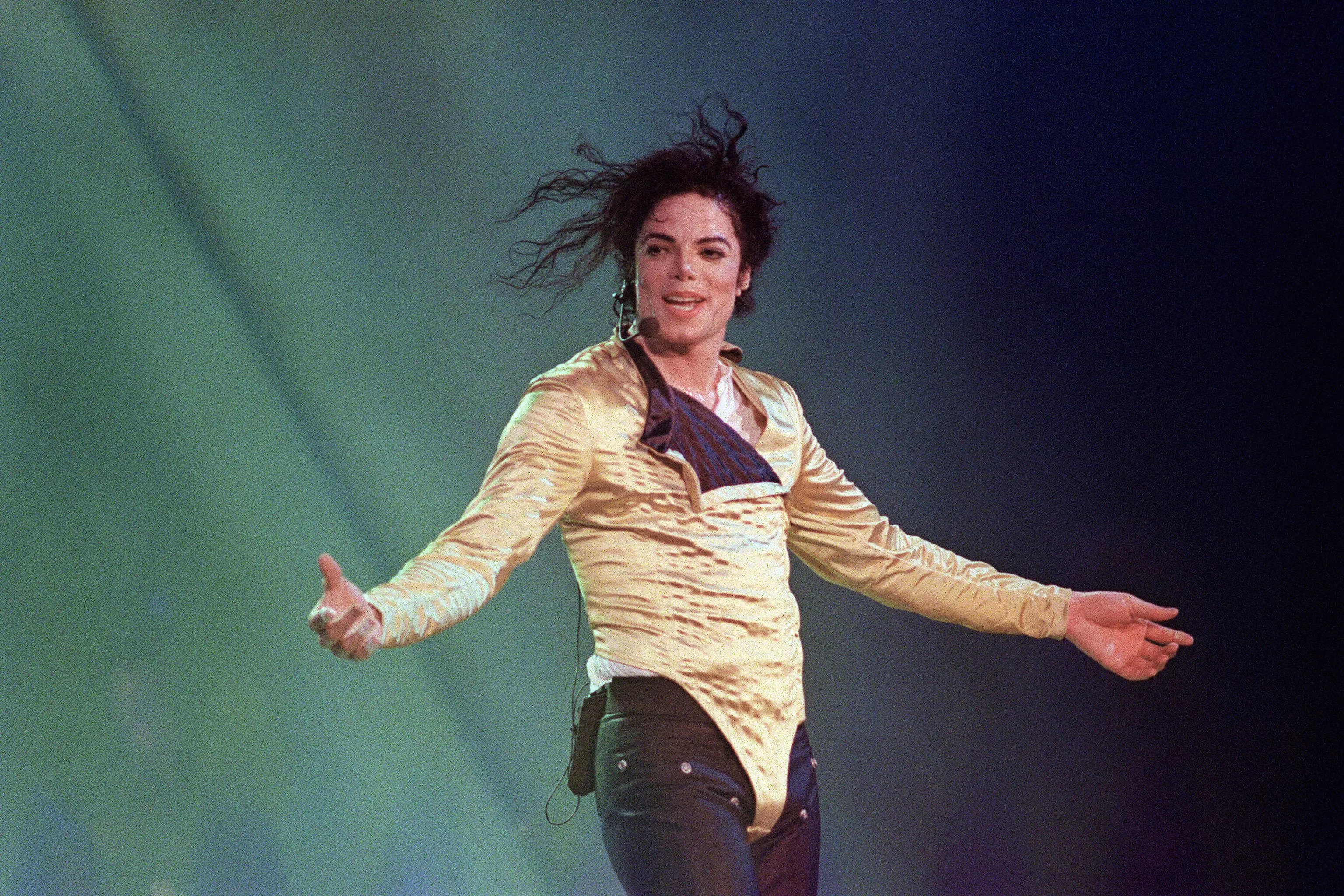
On This Day In Music: Michael Jackson Passes Away In Los Angeles At Age 50
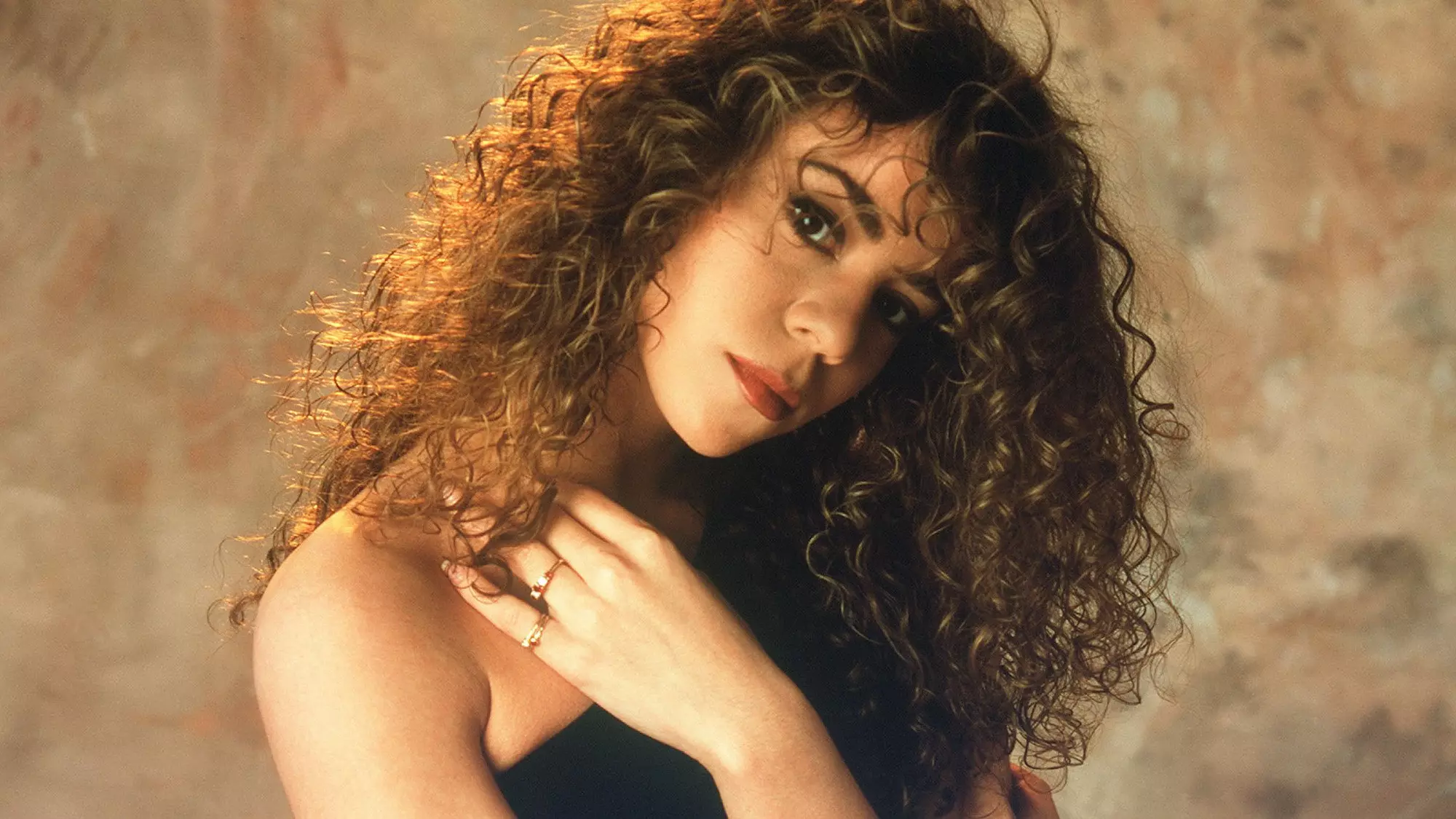
On This Day In Music: Mariah Carey Releases Her Self-Titled Debut Album
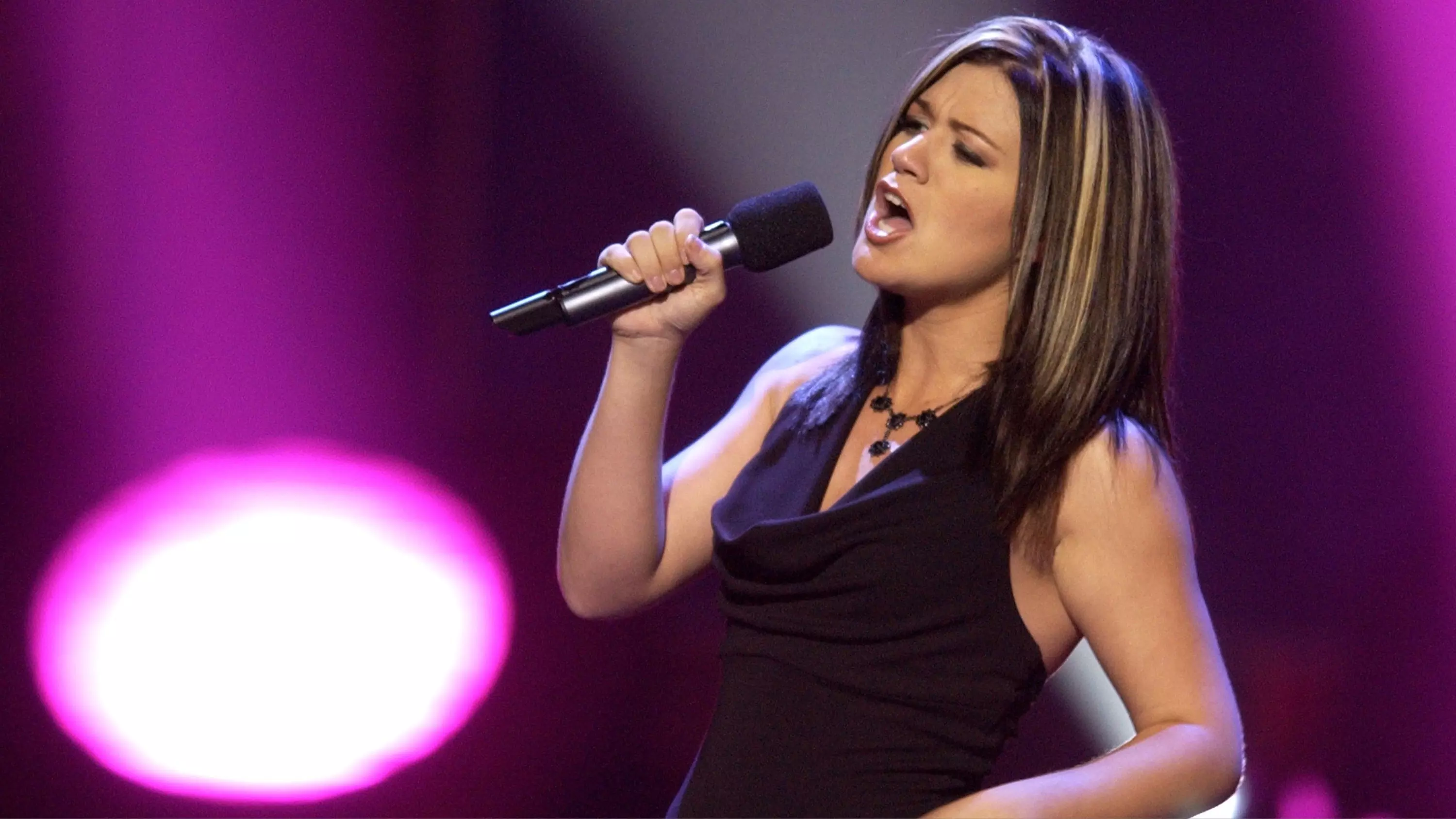
On This Day In Music: "American Idol" Premieres On Fox Network
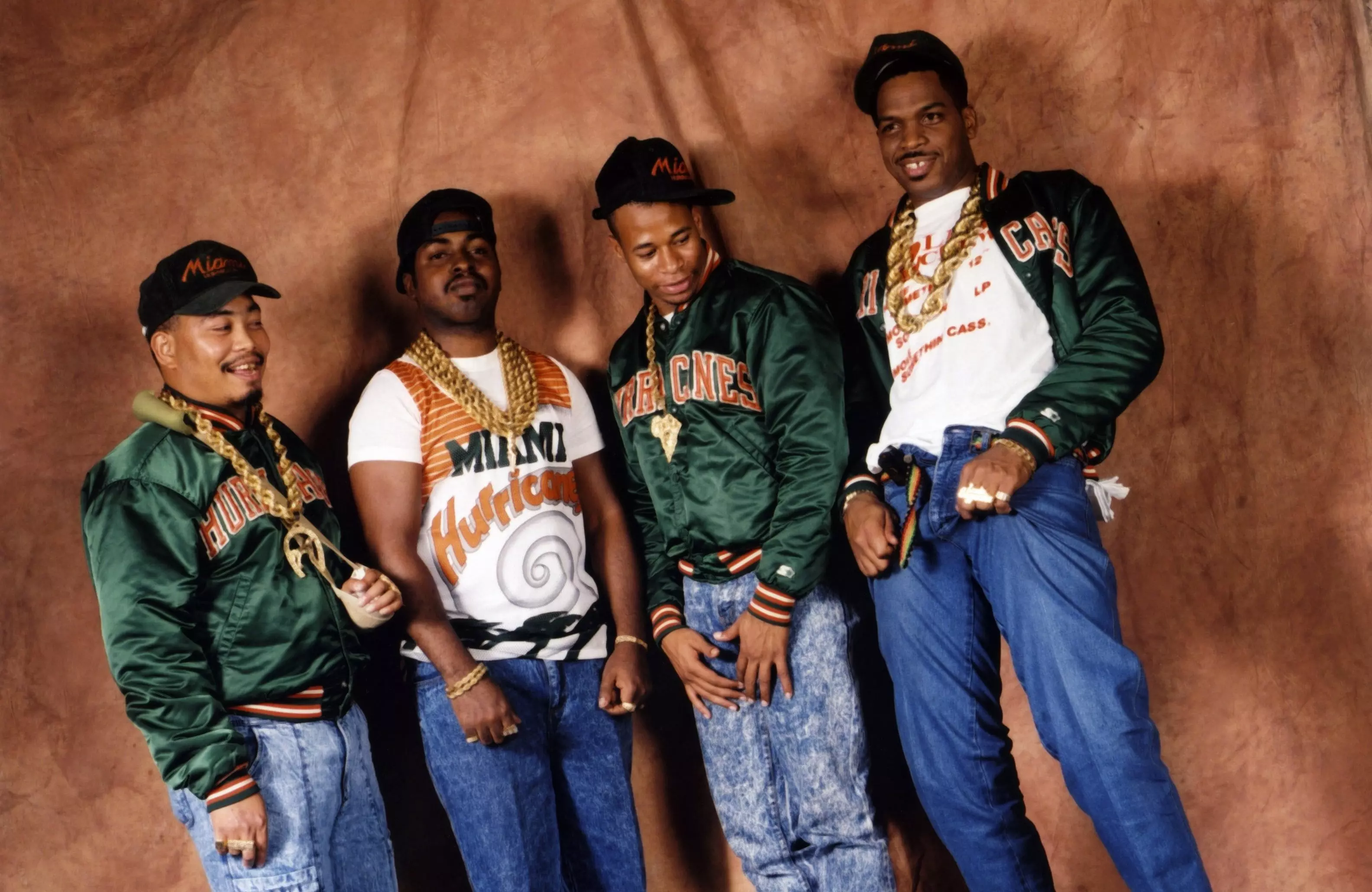
On This Day In Music: 2 Live Crew's 'As Nasty As They Wanna Be' Becomes First Album Declared Legally Obscene, Anticipates First Amendment Cases
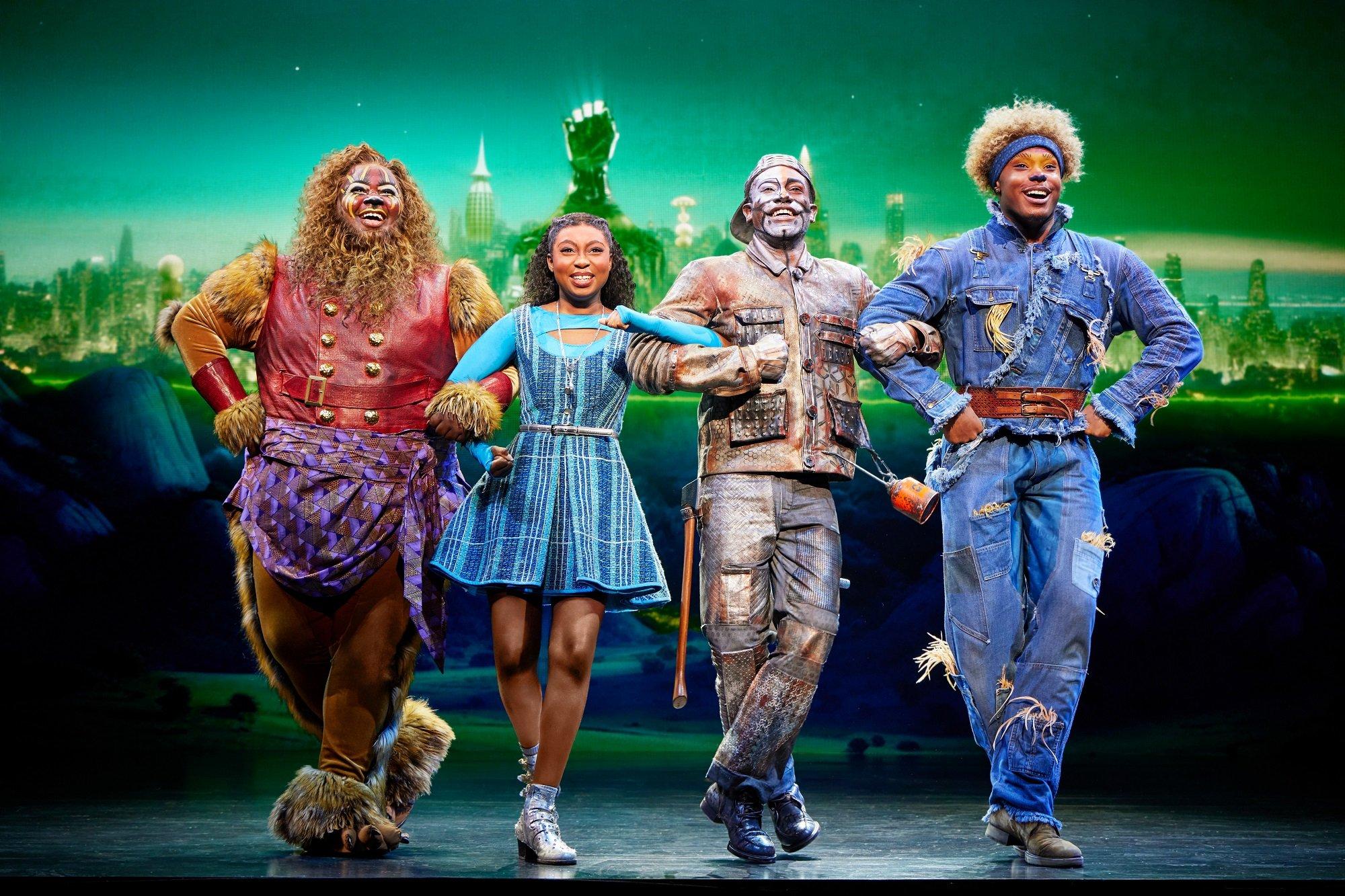
Photo: Jeremy Daniel
feature
50 Years In, "The Wiz" Remains An Inspiration: How A New Recording Repaves The Yellow Brick Road
From original groundbreaking production to its current Broadway revival, "The Wiz" stands the test of time. A new cast recording will be released June 14, which honors the strength of the music and the message behind it.
Of the many reviews of "The Wiz" over the years, one of the most famous comes from none other than Broadway legend Stephen Sondheim.
When asked what his favorite Broadway show is (besides his own), Sondheim named "The Wiz" and said it’s because, "it's the one show which makes you feel better when you come out of it than you did when you walked in."
The original production of "The Wiz" had its pre-Broadway tryout in 1974, with a Broadway premiere in January 1975. In the decades since, it's remained beloved among musical theatre fans, as well as a staple of community theatre. Not only does "The Wiz" boast a 50 year legacy and the distinction of being one of the first shows with an all-Black cast, but the musical itself stands the test of time because of the strength of the music and the message behind it. To accompany a tour and Broadway revival at the Marquis Theatre, the 2024 revival cast recording comes out on June 14, paving the yellow brick road for a new generation of fans to ease on down and enjoy the journey.
While many people remember the 1978 Diana Ross film The Wiz (which also starred a young Michael Jackson), it was a critical and box office flop. The Broadway show, meanwhile, had more success. The show won seven Tony Awards including Best Musical. The original cast recording is the 30th highest selling cast album of all time. In 2017, the original Broadway cast recording of "The Wiz" was selected for preservation in the National Recording Registry by the Library of Congress as being "culturally, historically, or aesthetically significant."
The tale of Dorothoy's arrival in and travels through Oz has been in the cultural lexicon for over 100 years. "The Wonderful Wizard of Oz" was written in 1900 and, 39 years later, the Technicolor Judy Garland movie cemented the iconic story. While "The Wiz" (full title "The Wiz: The Supersoul Musical ‘Wizard of Oz'") is still primarily set in the magical land of Oz, the creators and production team made significant, conscious choices to place "The Wiz" among Black culture of the time. The new production, with an updated book by Amber Ruffin, strives to do the same.
Of "The Wiz," the Smithsonian — which displays costumes from the original production in their National Museum of African American History and Culture — says it is "a tale that celebrates African American street style as a unique subculture and unapologetically American way of life. The song lyrics, script, sets, and costumes all reference and champion the struggles and triumphs of African Americans."
Analysis of the original cast album cites influences from popular music of the time, along with jargon. Most notably, however, and what Sondheim responded to, is that all the songs in "The Wiz" have a message and emotional core that moves the story forward both literally and within each characters’ arc. Instead of the repetitive "Follow the Yellow Brick Road" from the film, "The Wiz’s" "Ease on Down the Road" encourages the characters and then the audience to keep on keeping on with their goals. Lyrics such as "Cause there may be times/ When you think you lost your mind/ And the steps you're takin'/ Leave you three, four steps behind/ But the road you're walking/ Might be long sometimes/ You just keep on truckin'/ And you'll just be fine, yeah," can be applied to anyone’s life problems — not just Dorothy and Company on their fantastical journey.
After vanquishing the Wicked Witch, Evilene, the principals and ensemble sing, "Everybody Rejoice/ Brand New Day," a celebratory song that exudes joy. They sing, "We always knew that we'd be free somehow," which, when placed in American theatre and sung by an all Black ensemble, holds more historical significance than a simple song about escaping capture. Glinda appears and doesn’t just tell Dororthy to click her heels; she tells her to "Believe in Yourself" not only that she can go home, but that she should believe in her own feelings and power inside her heart.
Finally, "Home," which some say takes the place of the classic "Somewhere Over the Rainbow," speaks to a broader character arc and feels more like a pop anthem than a musical theatre song. It has been released as a single throughout the show’s history, including last year by Brandi Carlile to go with the "Ted Lasso" finale. While Garland’s Dorothy learns in the end, "There’s no place like home," "The Wiz’s" Dorothy sings, "And I've learned that we must look/ Inside our hearts to find/ A world full of love/ Like yours, like mine/ Like home."
The original Broadway cast recording is hard to find. It can be purchased on streaming services like Apple, but on Spotify, only the single version of "Home" is playable. "The Wiz: Live!," a well-received televised version, does have a readily streamable soundtrack, but a new Broadway cast album is very welcome. The cast features Nichelle Lewis as Dorothy and television and Broadway veteran Wayne Brady as the titular role; the stage production updates both script and set to feel more more contemporary. Meanwhile, the score has been lightly "refurbished" with additional songs.
"The original ‘Wiz’ was a definitive product of the 1970s in its glam and excess," Brady told the New York Times. "Ours is of this time: We have this place and can just be. From the queerness onstage to the costumes, the musicality, light and bricks. I think instead of fighting to be seen, this ‘Wiz’ is, ‘Oh, you see us.’"
Sondheim’s praise of "The Wiz" is particularly magnanimous because Sondheim’s own show "Gypsy" had a revival in 1974, the same year as the original production of "The Wiz," which meant the two shows battled it out both in box office and awards. A revival of "Gypsy" starring Audra McDonald and directed by George C. Wolfe has just been announced, so both "The Wiz" and "Gypsy" will again be on Broadway. This time, both shows will be led by Black actors and directors.
Broadway has struggled post-pandemic, and America has a lot to learn about love when it comes to race, but, with the release of "The Wiz" back into the world, we get a much-needed infusion of joy. Throughout the last 50 years, there have been many stories and real events that point to a world that is anything but full of love, but, through it all, "The Wiz" holds onto hope.
New Broadway Musicals To See This Spring: "Hell's Kitchen," "The Wiz" & More
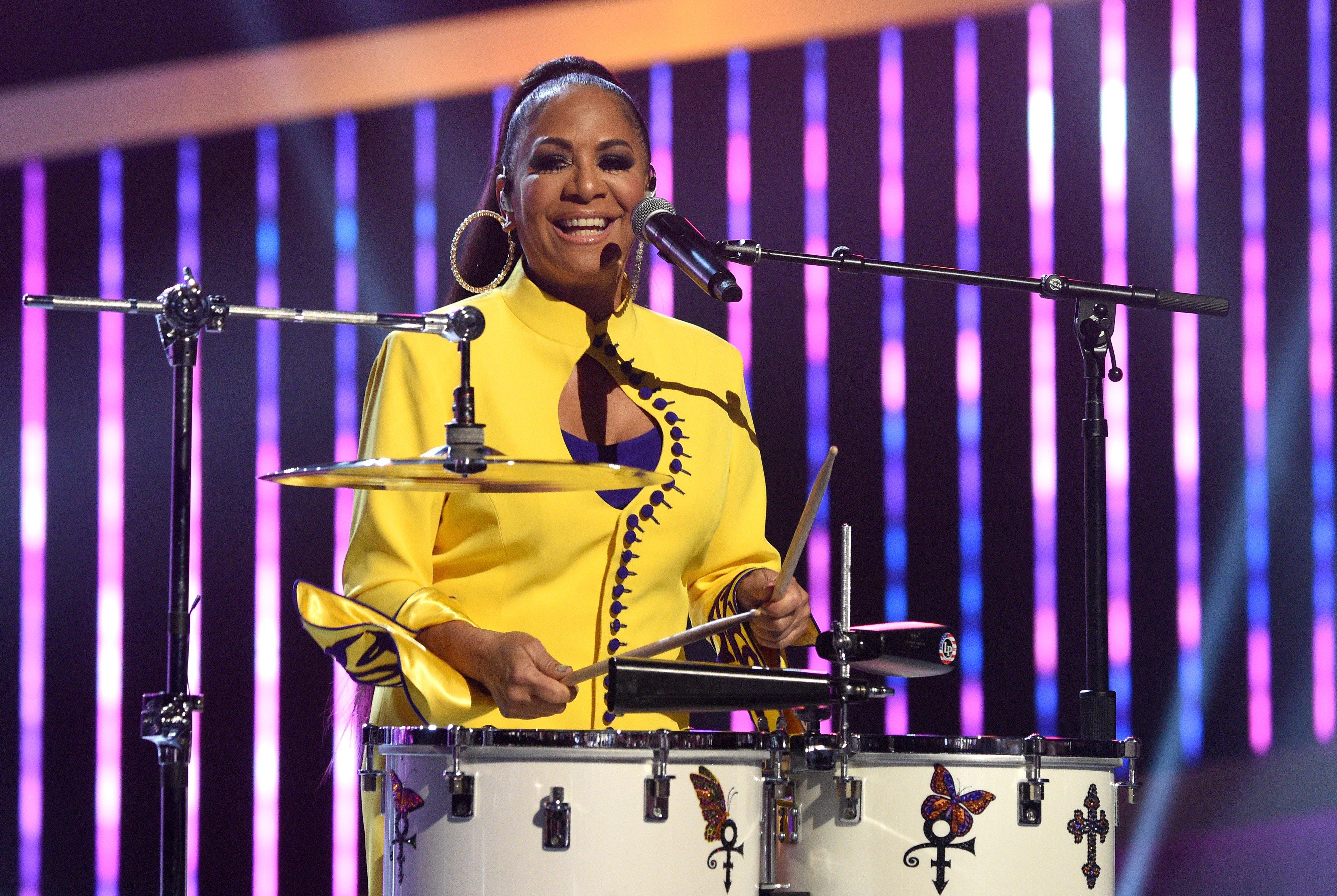
Photo: Kevin Mazur/Getty Images for The Recording Academy
interview
Living Legends: Sheila E. On Prince, Playing Salsa And Marching To The Beat Of Her Own Drum
"I was a percussion player leading my band, playing timbales, which no one really understood," Sheila E. says of her debut record. Forty years later, the GRAMMY-nominated multi-hyphenate is still forging her own path on the energetic new record, 'Bailar.'
GRAMMY-nominated singer/songwriter, producer and percussionist Sheila E. has certainly had a glamorous life — and has done a lot with it.
The child of percussionist Pete Escovedo and goddaughter of legendary timbalero Tito Puente, Sheila Escovedo has been energizing stages for most of her life. First performing as a child, Sheila was one of few female percussionists in the 1970s and '80s, and rose to the upper echelons of the music industry — performing alongside Marvin Gaye, Michael Jackson, Lionel Richie, Herbie Hancock and Diana Ross. Whether in session or onstage, her dynamism and inventiveness continually made Sheila the star of the show.
"I think outside the box," Sheila E. tells GRAMMY.com. "You just come up with ideas and it doesn't have to be traditional. It just has to be from your heart, a feeling that makes sense, that compliments whatever song it may be."
Sheila's energy and unique approach to playing drums, timbale, and percussion caught the attention of Prince, a unique artist in his own right. The two spent decades as creative partners – Sheila acting as the Purple One's drummer, producer, musical director and, for a time, romantic partner; Prince shepherded her 1984 solo debut, A Glamorous Life, into being — and worked together until his death. Among her lasting contributions to their musical legacy, Sheila performed on the Purple Rain sessions and toured the album, and her vocals appear on "Erotic City." The two duetted on Sheila's 1986 single "A Love Bizarre" and, fittingly, got engaged in the middle of a performance.
In addition to her list of impressive accomplishments (which include co-founding the educational nonprofit Elevate Oakland), Sheila E has released eight albums as a solo artist. Her ninth, Bailar, finds the one avenue Sheila had yet to pursue: salsa.
Recorded in Miami with a cast of local musicians, the 10-track record features originals and covers in both Spanish and English, and its lead single — an energetic cover of Celia Cruz's "Bemba Colorá featuring Gloria Estefan & Mimy Succar — fittingly has Sheila playing percussion, timbale and singing.
"This is the best record I've ever done. I feel that good about it," she says. Ahead of Bailar's April 5 release, Sheila E. spoke with GRAMMY.com about creating music in a new idiom, the importance of collaboration, and finding space in music.
This interview has been edited for clarity.
You've been working in the funk, R&B and pop space for years. What brought you to salsa now?
I've wanted to do a salsa record for a long time. My bucket list is extensive, and then I met [GRAMMY-winning producer and timbale player] Tony Succar in 2015… he did a project and took Michael Jackson songs and flipped them into salsa. I said, "Man, if I ever do my salsa record, we have to do it together because you understand."
I'm bringing that Oakland vibe to salsa. My dad was a Latin jazz artist — that's the foundation of who I am — however, he also played salsa music in the house. I grew up listening to Tito Puente, Mongo Santamaria, Ray Barretto, Eddie Palmieri, Celia Cruz and Tito Rodriguez, and the Fania All-Stars. Our whole family loves salsa dancing.
There was music that I had written for an R&B album that I didn't release, and I said we can take some of this and flip it into salsa. This is another side of me that I'm excited about sharing with the people.
Bailar sounds like something you would hear in New York or Miami, but there's something slightly different about it. What are you bringing to this record that might be different from another salsa band?
Salsa is very demanding. It's specific and traditional; there are things that are supposed to be played in specific sections of a song — whether it's a conga rhythm, a timbal rhythm, a cowbell rhythm. The element of the Bay Area and the Latin jazz with a little bit of funk, that was me [adding something new].
I always wanted to do "Bemba Colorá." I did a rumba in front of it and took a conga solo, and when I got to the half-time of that song, I said, "I want to take a drum solo." I don't think anyone has taken a drum solo or have even played drums on this song…especially a woman. Just adding different elements like that, as well as the way that I mix: where I place the horns and where I place the percussion and where the bells are and where the drums are.
Tony Succar and I produced this record together. I did a couple of arrangements [and] co-wrote seven of the 10 songs. The songs that I had already written were arranged, but then we wanted to flip them into salsa.
Are there any other songs on this record that you're particularly proud of?
All of them. Every one is a different story. The only woman that I could think of to call [for "Bemba Colorá"] was Gloria Estefan; she's like my sister. Mimi Succar is a new and upcoming artist, so we had her to sing as well, and the three of us just had a blast.
[Also] playing "Anacaona," which is a song I used to hear [by] Fania All-Stars and Cheo Feliciano. My dream was to have Rubén Blades sing on my record; he sang that song and I started crying. I was just overwhelmed.
["El Rey del Timbal"] was one song that I had played with Tito [Puente] and my dad many times. When Tony sent me the demo, I listened to it and was like, "We got to go way faster than that. If Tito was playing it, he would've played it this way, and I know because I've played it with him." So I started taking a solo, banging my legs while I was listening to it through the phone, and I just kept going faster, and then Tony's like, "Are you serious? This is 200-something BPMs."
It was perfect for me taking the timbale solo, but when I had to then overdub and play all the parts on the bells and everything, it was so fast, I was like, What was I thinking? The horn section had it worse. A trumpet player yelled on the track — "Ahh!" — and I boosted him yelling [on the final mix], because that's real stuff. It took everything for them.
I'd love to hear a little bit about your relationship with Tito Puente and any important musical lessons he taught you, especially now that you're coming out with an album that's very much influenced by his work.
He was such an influence. He was amazing. He did so much for us as a family, musically, as well as being our friend and growing up listening to him. He and my dad met when they were 18, and having him around the house when I was growing up, I didn't even know he was.
The biggest thing was we would go to New York, my dad and I, and we would sit in with Tito at the Palladium and the Corso. And back then, you'd have four bands playing in one night until 6 in the morning. And they would jump from one club to the other. It was the most stressful time because, as jazz artists, we didn't hardly sit in with salsa bands. I was like, "But papa, I don't know the clave, I don't understand what bell pattern or what conga pattern to play." He goes, "Don't worry about it. You don't listen to those guys. You just go play you."
So he kept encouraging [me]: it doesn't matter, you have the heart to go ahead. And my pops would say the same thing: We might not understand it technically, but we play it from our heart. [Tito] always encouraged me, and I got to play with Celia, Tito and [bassist] Cachao [Lopez] at the same time.
What a dream come true. Tito introduced me to all of these musicians as well, but really just telling everybody, "You be quiet and just let Sheila play."
Read more: Celebrating Tito Puente's Centennial: 10 Essential Songs By The Mambo King
Bailar is a bit more celebratory than your last album, 2017's Iconic: Message 4 America, which was heavily political. Obviously we continue to live in increasingly fraught times; why was it important for you to put more positive messages out into the world? One of your tracks is even called "Possibilities."
We are living in hard times, and it's challenging. Things are changing every single day. And everyone is going through something every single day. One of the things that has been such a blessing to me is the gift of music. I don't take it for granted. To be able to share music and at least make people happy for the five minutes that you listen to this song or the entire record…is healing.
Many times in my shows, people end up crying. It's emotional, and music brings joy. It lifts you up. It brings you to a place of happiness and love, and we just want you to have a good time. But the joy that I get to be able to do this, it heals me too. And I just thought it was important.
Your work and relationship with Prince is so extensive and deep. What would you consider the peak of your creative partnership?
I don't think there ever was. We continued to grow and just kept experimenting on different sounds, and recording and jamming. We first jammed together in 1977 when he came to my house. We either recorded or played together [on] so many songs. There's still tons of stuff in the vault…I counted at least 200 songs I played on that I haven't even heard yet.
We were always jamming, coming up with something, or recording. A lot of times I would engineer for him as well; it's just he and I [in the room] most of the time. I taught myself some engineering when I was growing up; I saved all my money and started buying recording gear so I could learn how to write and produce myself when I was in my teens.
So when I started to record with [Prince], I had already recorded songs on tape before. Being in the studio with him, we would see who could stay up the longest, who's going to fall asleep first. We would catch each other [falling asleep] almost at the same time.
*You also worked with Prince on your debut album, 1984's The Glamorous Life. You'd been working so much as a musician up to that point already that it's interesting to think of it as your debut. How did you work on that project together?*
We had already been jamming and playing together before we did all that. And I had been out on tour with so many artists beforehand; when we first met, I was already touring with George Duke in the mid-'70s. [Prince was] like, "I've been watching you and I'm following your career, and maybe one day we could do something together."
He started doing all these albums, and then he becomes the Prince that we all know. He changed every record, which was amazing musically. At the time [we recorded Glamorous Life], he was at Sunset Sound [recording studio and] he had all the rooms going at the same time. We just went in and started recording.
Prince was very involved in getting me the deal with Warner Brothers. He just one day said, "You want to do the record now?" And I was like, "Yeah, I think I'm ready. Let's do it." It was that simple. We went into the studio and we were pretty much done with my record, from top to bottom, in a week.
We just stayed in there, literally no sleep. We were so excited. We had so much fun.
Back then, I wasn't really playing drums a lot. I wanted to make sure that my percussion was in the forefront, and he knew that too. That's how Glamorous Life came about, to showcase me in a light that I wasn't really a singer. I was a percussion player leading my band, playing timbales, which no one really understood because, in pop culture, no one had done that.
So it took even a minute for [Warner Brothers] to understand releasing the record. They wanted to release "Belle of St. Mark" first as the single and not "Glamorous Life"; I had to fight them on it because I said, "'Glamorous Life' is a song that is important to me, and it showcases me as a percussionist and a singer. If I do 'Belle of St. Mark,' it's only me singing. I'm not even playing percussion."
I would love to hear about other musical collaborators who are a big part of your story.
I've been able to play with so many people: George Duke and my dad, and [drummer] Billy Cobham, [bassist] Alfonso Johnson, and it went on. Then [jazz guitarist] Lee Ritenour and [jazz pianist] Patrice Rushen and all of these other artists; Herbie Hancock…. Then you go switch over to Marvin Gaye, and then you go to Brooks & Dunn. I just hopped all over the place with Con Funk Shun and sitting in with so many people and recording. When we do these events, you get to sit and play with Phil Collins and Elton John; I'll just play percussion, I'll be the backup. I don't need to be in the front. Part of what I love is I get to be on both sides.
I can be a team player and play with a group, which is so exciting. Or if you want to feature me, that's fine. That's kind of what had happened throughout my life; anyone that I performed with would just say, "Sheila, you just go out in the front." They would push me out there. Marvin Gaye is like, "Sheila, you take over. I'm going to go back and change." He made it a part of his show. And then same thing with Lionel Richie. Everyone would just feature me, it became that thing. Everyone has influenced me in some sort of way.
You're out there being featured and just putting so much into your performances. You have this incredible amount of energy. What powers you?
God's given me the gift and point-blank. I am forever grateful to be able to do what I get to do because of that gift. I don't take it for granted.
You have musical directed the Obama's Festival Latina, the Recording Academy's Tribute to Prince, and of course, you were his musical director for many years. Does that work require a special set of musical muscles?
When it comes to music and just being an artist, whatever you put into it is what you get out. I would always do the homework that was needed to play with an artist — learn all the music — so when I walked into a situation, I would walk in with confidence. I wasn't a great reader at all; it was really all by ear. That preparation is everything.
Putting together my first ever band during that time in the early '80s, I knew what I wanted. [Today] I'm able to put together projects and put the right people together. For some people, it's just a gig and for me, it's more than that. It's a lifestyle and it's family and it's trust and it's respect.
How did you choose the music for "Let's Go Crazy: The GRAMMY Tribute To Prince"?
Some of the songs they already had, some of the other songs I suggested. Almost everything that they were going to play, I knew and I had a lot of the original music. I had a lot of the samples; I had Prince's vocals. There were things that I had that could help in some of the arrangements, and a lot of the arrangements I used from my show.
You try to adjust to make sure that [the artists] shine and that they feel comfortable, because everyone was really nervous. I had many conversations with people making sure, "Is this a good key for you?" Making sure that "You don't have to sing it like Prince. This is your representation of who you are and you happen to be doing a Prince song and no one's going to judge you for it."
Speaking of collaborative efforts, The Greatest Night in Pop music doc came out recently. What do you remember from recording "We Are the World"?
I kind of didn't want to do it because, initially, we were on the Purple Rain tour [and] we were exhausted. At some point I thought, Do I even belong in that caliber of people?
[At the "We Are The World" session,] everyone was hanging out, everybody was really cool. No one had a huge entourage. I was excited to meet people I hadn't met before. One of the people I was excited about meeting was Cyndi Lauper. I loved her. I wanted to meet Bruce Springsteen, the boss.
In that moment of being in that room with everyone, and it was just amazing to [think], Wow, we're going to do something incredible to be able to raise money for people who are starving. Then you just take a breath and you do what you do, and then things happen.
Do you think that you have changed or contributed to the sound of percussion in R&B and pop music?
My style is my style. Different artists from the Bay — Sly and the Family Stone, Carlos Santana, my dad's band [Azteca], Grateful Dead, Tower Of Power, of course, Pointer Sisters — listening to all those bands and being able to watch their rehearsals when I was a teenager influenced me.
The key was being adaptable to what needed to be for that specific song. You have to make up your own beats, because being a percussion player is like [working on] a beautiful painting that's already painted and they're asking you to put one color in there or you see a space — what would you put in that space?
It's not about playing all over the place and playing something that doesn't belong. You have to figure out those spaces and, to me, the most important part of music is space. That space is what allows a song to breathe.
I would use different things even in the studios; I didn't use all of the right mics all the time. I would bite on an apple and sample it and put that sound on top of the snare. I just experimented. I started on pots and pans, and I used keys, and I used a spray bottle can that blows out air to clean your computer as a high hat. Everything can be musical.
One of the biggest things is Michael Jackson's "Don't Stop 'Till You Get Enough." Quincy [Jones] had called me and said, "Michael wants this kind of sound, I don't know what it is, bring all your toys." I brought everything. I ended up getting two bottles and I poured water in it, and I used the holder to play the triangle on the sides of the bottle. So "Don't Stop 'Till You Get Enough" has those bottles.
You just come up with ideas and it doesn't have to be traditional. It just has to be from your heart, a feeling that makes sense, that compliments whatever song it may be.
Are there any other female percussionists out there right now that you see carrying the torch that you lit?
Oh my God. There are so many drummers right now. I go on social media frequently throughout the week, and I try to find at least someone new and DM them and say, "You're amazing. God bless you. Thank you for your gift. Keep doing what you're doing," and people freak out.
That's part of my job, to continue to encourage the young people to keep playing.
You've mentioned in previous interviews that you've dealt with a lot of harassment throughout your career as a woman playing an instrument that women don't traditionally play. I'd like to know how you continued to move forward and own your vision in an industry, and in an era, where women are often belittled or posited as like sex objects.
When I first started, I didn't know it was a big deal that I was one of few — or one of one — that was doing what I was doing. In the Bay Area, you see a lot of women playing percussion. In Berkeley, we all go and hang out at the park and everyone plays and it's like 20 or 30 of us and whoever brings their instrument, they just jam with us.
Coming to L.A. and recording with other artists, when I walked into a room, the drummer would say, "Can you get me a cup of coffee?" And I'm like, "I'll get it for you but I'm not the receptionist or anything. I'm the percussion player." They would freak out.
When that first started happening and things were being said that were really rude and bad, I would go back to my parents. They would just say, "You just keep doing what you're doing. They're jealous or they're mad because you're there, or they've never seen anyone like you. You have a gift and you just go ahead. You learn the music, know what you have to do, so when you walk in with confidence, it's not an issue." A lot of the time, those musicians were not prepared, and I was, and they hated me even more because I knew everything.
I got so much joy out of performing. And even with all the nos and the nastiness and the stuff that was being said [like], "Hey, if you sleep with me," all of these other things. It just made me stronger. You keep pushing through; you just keep playing.
When you find your passion and that's your purpose, no one can stop you. I stand on that word.
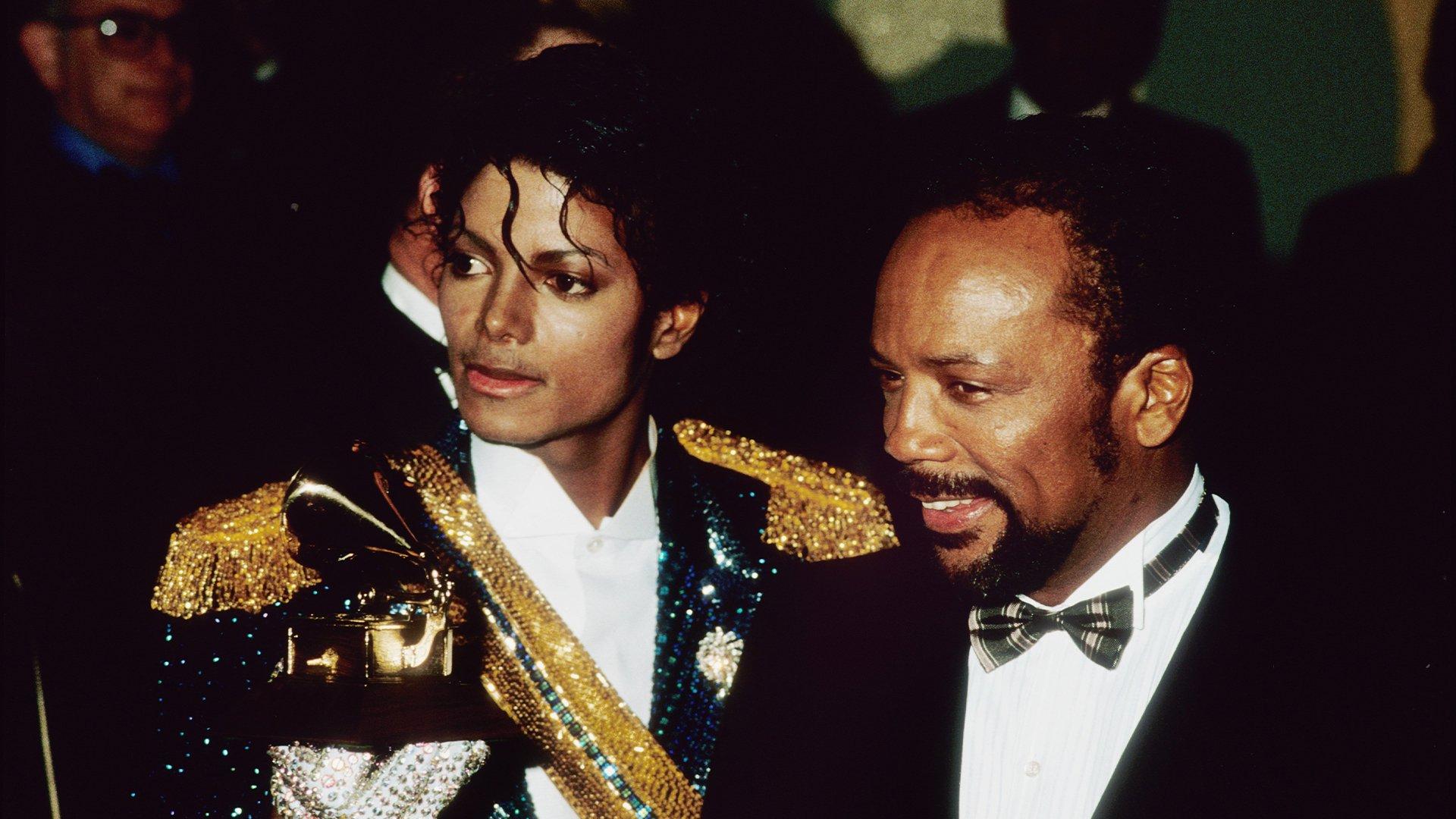
Photo: Michael Ochs Archive/Getty Images
video
GRAMMY Rewind: Michael Jackson Wins Best Recording For Children, The Award He Was "Most Proud Of" At The 1984 GRAMMYs
Michael Jackson took home eight golden gramophones at the 1984 GRAMMYs, but felt most rewarded by his win for his audiobook and soundtrack companion album for 'E.T. the Extra-Terrestrial.'
Michael Jackson made history with his groundbreaking album Thriller in 1982. But while the icon was smashing pop records, he was also venturing into a new avenue: narration.
Jackson was the voice of the audiobook and soundtrack companion album for Steven Spielberg's groundbreaking 1982 classic, E.T. The Extra-Terrestrial. The album won the King of Pop one of his eight GRAMMYs in 1984 – and it may have been the most important win of his career.
In this episode of GRAMMY Rewind, relive the night Jackson won Best Recording for Children with Quincy Jones, who produced the LP, at the 26th Annual GRAMMY Awards.
"One of the most dangerous joint decisions Michael and I made was to accept to do an album for Steven Spielberg," Jones explained at the beginning of their acceptance speech before expressing gratitude for the film's cast and crew.
"I don't thank the people who stopped this record from coming out," Jones said, alluding to the backlash MCA Records received from Epic for releasing the project at the same time as Thriller.
"Of all the awards I've gotten, I'm most proud of this one," Jackson revealed. "I think children are a great inspiration, and this album is not for children. It's for everyone. I'm so happy, and I'm so proud. Thank you so much."
Press play on the video above to hear Michael Jackson and Quincy Jones's complete acceptance speech for Best Recording for Children at the 1984 GRAMMY Awards, and check back to GRAMMY.com for more new episodes of GRAMMY Rewind.
Black Sounds Beautiful: How Quincy Jones' Stratospheric Career Has Shaped And Celebrated Black Music
